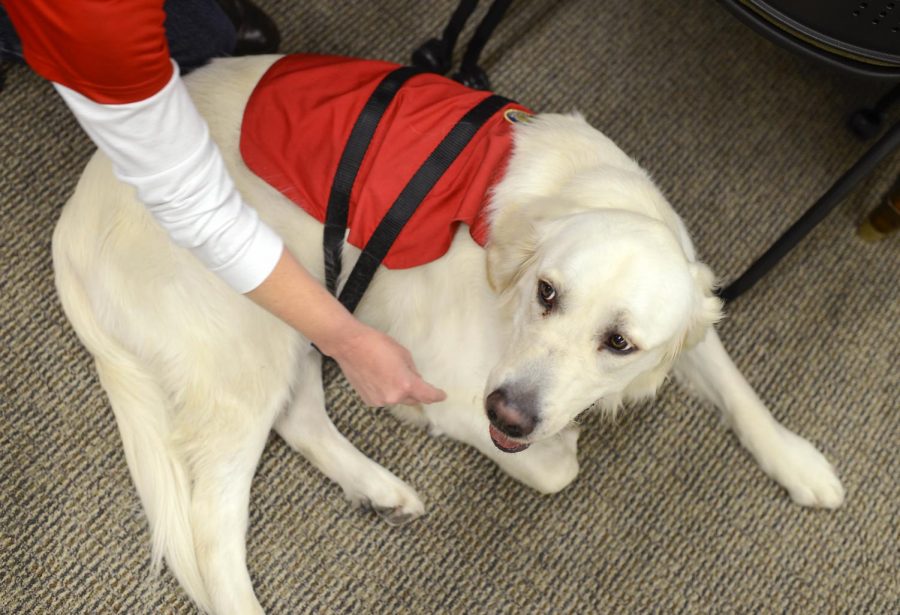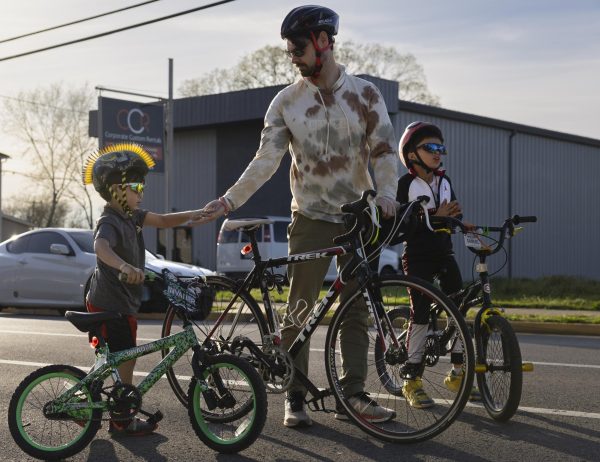WKU’s therapy dog promotes a ‘CanDoo’ attitude
December 3, 2015
For more than three years, WKU’s therapy dog CanDoo has worked on campus to provide students, faculty, staff, military personnel and others a calming presence.
“[CanDoo] is a unique asset that not a lot of universities have,” Military Student Services assistant Kent Johnson said. “It’s unique to WKU that we have this therapy dog here during the semester for students when they need him.”
This week, CanDoo, the English cream golden retriever, spent time visiting a local family in need.
“He is the most patient dog I have ever met in my life,” former caretaker of CanDoo Julie Taylor said. “He’s very relaxed and very pleasant.”
Taylor also noted that CanDoo is receptive to human emotions and gets the sense that he can tell what his patients are feeling.
“He offers a cuddly face,” she said. “He gives campus a distraction to the stresses we have at the moment.”
Usually, he can be visited in Tate Page Hall in room 408, but calling to ensure the dog is in office first is recommended. He also makes visits off campus, particularly to military personnel and children.
Johnson said the effect CanDoo has on the larger WKU population is a rewarding experience and that he loves seeing the reactions of people everywhere they go with CanDoo.
“He’s just a sweet boy,” he said.
CanDoo has been working with WKU for more than three years in Military Student Services.
“With [CanDoo] being here pretty much every day, it’s good because a lot of times with our students, you never know when something is going to happen and they’re going to have a bad day,” Johnson said. “As much as we would like to know, you can’t schedule your bad days.”
CanDoo also provides services to the Kelly Autism Program by aiding children with certain learning disabilities.
The KAP is designed to provide services to individuals aged 7 and older who have been diagnosed on the autism spectrum; it also assists their families, according to the KAP website.
Therapy dogs can help lower blood pressure, reduce patient anxiety, and increase levels of the hormone oxytocin and of certain endorphins, according to the Therapy Dog Certification website.
Therapy dogs also benefit humans by boosting happiness, improving empathy, stimulating better pair bonding and promoting a happier life, the website stated.
When CanDoo was younger, he had several surgeries due to ACL issues; he has come a long way during his time at WKU, Johnson said.
Johnson also noted CanDoo has occasional aches and pains but is still doing very well. He added that this trial in CanDoo’s life represents how fitting his name is.
“He’s a special-needs dog himself,” Johnson said. “His story is a ‘CanDoo’ kind of story.”

























